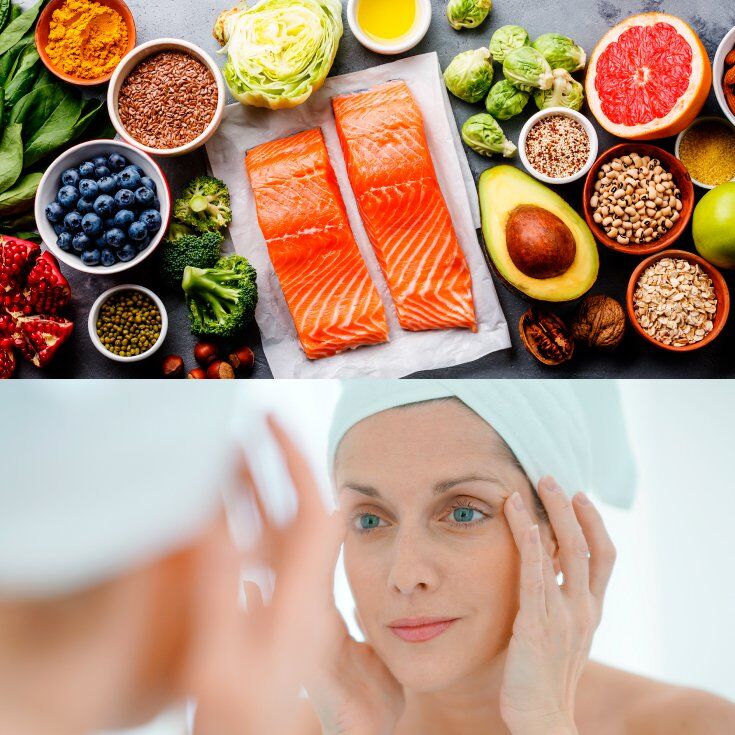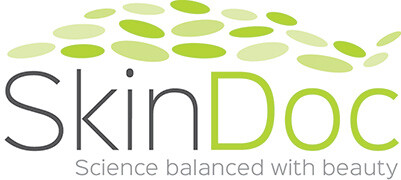
Anti-ageing foods
What is the best diet for healthy beautiful skin?
The best diet for your skin is a diet which also best for your general health (high in anti-oxidants such as flavonoids). A diet rich in flavonoids has anti-inflammatory benefits, cardiovascular benefits and central nervous system benefits. It can help in lowering the risk of atherosclerosis and delaying the onset of age-related dementia. Flavonoids may also lower the risk of certain cancers such as breast and lung cancers. Flavonoids promote better regulation of cell cycles. Most cells in our body undergo cell division, resting and cell death. Flavonoids help keep the cell cycles in balance through regulation of signalling between cells and their surroundings.
What are the best foods for your skin and health in general?
A diet rich in flavonoids and carotenoids, two plant-based anti-oxidants which help remove free radicals that cause ageing. A well-balanced diet is a healthy diet which will help not only your skin, but also help you lose weight, help you live longer, make you feel fitter and generally help your well-being.
My top 10 super foods for your skin:
These foods are not only good for your health but are also anti-ageing foods.
Super food 1 – Berries
They include blueberries, strawberries, cranberries, raspberries
Berries are rich in antioxidants and good source of fibre
Berries particularly raspberries and strawberries contain ellagic acid, another phytochemical that help protect against cancer-causing agents in the diet and the environment.
They contain a phytochemical, anthocyanidins. Other anthocyanidins-containing foods are bananas, cherries, pears, plums and cabbage.
Other flavonoids rich in anti-oxidants are sweet potatoes and peppers. Sweet potatoes contain high levels of Vitamin A that help tackle free radicals. Peppers have the highest levels of vitamin C and should be eaten raw to maximize their health benefits.
Superfood 2 – Nuts
Nuts contain healthy fats as well as a smaller amount of protein and carbohydrates. Each type of nut contains a unique profile of minerals, phytochemicals and types of fat. Walnuts are highest in plant omega-3s. Brazil nuts are highest in selenium. Selenium is a mineral that helps in the production of glutathione, an antioxidant which repairs cell damage and slows down the skin ageing process. As little as two nuts per day will help you slow down the ageing process. Most nuts contain phytochemicals, resveratrol and plant sterols which help lower cholesterol.
Almonds are high in antioxidants, vitamin E which protects your cell membranes from damage, manganese, magnesium, protects LDL cholesterol from oxidation, reduces hunger, lower blood pressure and control blood sugar.
Almonds help keep skin moisturised and soft by promoting oil production.
Superfood 3 – Dark green vegetables
This include broccoli and spinach. They are high in vitamin C, E, A and calcium. They are loaded with magnesium and potassium. Spinach provides a high amount of vitamin C which the body needs to manufacture sebum, the natural oily substance produce by sebaceous glands. Sebum is your body’s natural conditioner. It keeps your hair shiny, smooth and your skin well hydrated and looking youthful.
Superfood 3 – Legumes
This group includes beans (such as black beans, soybeans, chickpeas, kidney beans, and lima beans), peas (such as green peas, snow peas, snap peas, split peas, and black-eyed peas) and lentils (the nutritional profile is the same regardless of the colour). Lentils are a good source of zinc. All are high in antioxidant activity, protein and carbohydrates but low in fat.
Superfood 4 – Tea
Tea contains two potent phytochemicals, anthocyanin and proanthocyanin. Both are antioxidants that help fight inflammation. Tea contains catechins, antioxidants that are thought to block cell damage than can lead to cancer.
Green tea in particular contains protective phytochemicals. Epigallocatechin gallate is a catechin which is particularly abundant in green tea and a powerful antioxidant. This catechin is thought to slow down the ageing process increasing the production of stress-producing proteins. It may also help prevent skin cancers due to sun exposure.
Superfood 5 – Fish
Fish has high levels of omega-3 fatty acids. Omega-3 fatty acids help prevent inflammation which occurs in coronary heart disease. In the skin, as we age, cell turnover slows down and the skin produces less oil, diminishing our natural glow. Improve your skin irradiance with salmon, one of the highest omega-3 containing fish. Other fish high in omega-3 are tuna, sardines, mackerel, herring, oysters and wild rainbow trout. Omega-3 help fight UV light cell damage.
Tuna is also rich in niacin. Niacin deficiency can cause skin rashes. Sardines rich in omega-3 fatty acids promote hair growth and keep your hair looking shiny.
Superfood 6 – Pomegranate seeds
They contain juice rich in ellagic acid and punic alagin, two agents that fight damage from oxygen free radicals and preserve the collagen in your skin.
Superfood 7 – Tomatoes and Watermelon
Both contain lycopene which protects the skin from UV light damage which leads to premature ageing.
Superfood 8 – Sunflower seeds
They contain lignin phytoestrogens which prevent collagen breakdown and boost the skin’s lipid barrier function.
Superfood 9 – Romaine lettuce
This humble green leafy vegetable is high in vitamin A that helps revitalize your skin by increasing cell turnover and encouraging new skin cell growth.
Superfood 10 – Wheatgerm
This food is rich in zinc which plays an important role in the production of new skin cells. It is anti-inflammatory, can help prevent eczema and can reduce acne.
